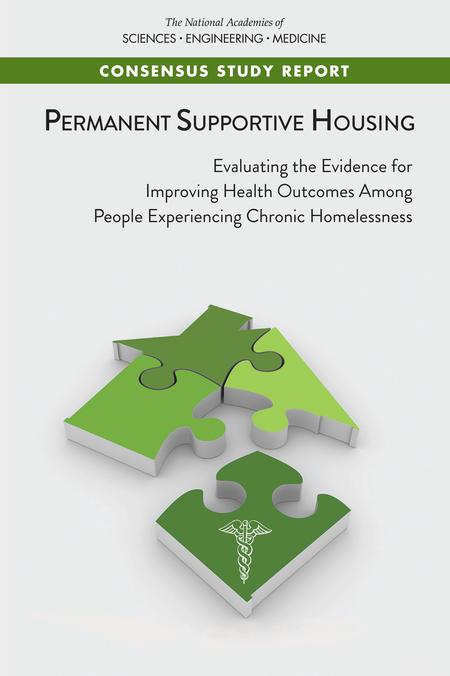Headline
Permanent supportive housing shows mixed results in improving health outcomes and health care costs for people experiencing chronic homelessness.
Context
People experiencing chronic homelessness are at high risk for numerous health conditions, including infectious diseases, traumatic injuries, and death due to substance use. They are also more likely to use emergency departments for health care compared to people with stable housing. Over the last few decades, many programs have been developed to address the needs of people experiencing chronic homelessness, including permanent supportive housing (PSH) – i.e., housing that is not time-limited and is combined with voluntary supportive services. This report focuses on the impacts of PSH on health outcomes and health care costs for people experiencing chronic homelessness. It also identifies recommendations to address policy and program barriers in bringing PSH to scale and research gaps to be addressed.
Findings
The literature available at the time this report was published in 2018 did not indicate sufficient evidence that PSH contributes to improved health outcomes or cost savings, though there were some positive findings for specific populations (i.e., improved health outcomes for people with HIV/AIDS and cost savings for people who are persistent high utilizers of acute care). There is also some evidence that individual characteristics of the people using PSH programs impact outcomes achieved with these programs (e.g., people older than 50 may derive greater mental health benefits from PSH than younger individuals).
Policy and program barriers to scaling PSH include siloed funding streams and policy regulations. The report recommends that the Department of Health and Human Services and the Department of Housing and Urban Development should review their programs to identify unmet needs and maximize flexibility and coordinate funding streams for supportive services, health care, housing services, the capital costs of housing, and operating funds such as vouchers. The Centers for Medicare & Medicaid Services should clarify state reimbursement policies for allowable housing-related services, while states should expand the use of Medicaid reimbursement for housing-related services.
Takeaways
Although additional research is needed to determine when and for whom PSH is most beneficial, PSH holds potential for providing stable housing for people experiencing chronic homelessness and improving their health outcomes.




